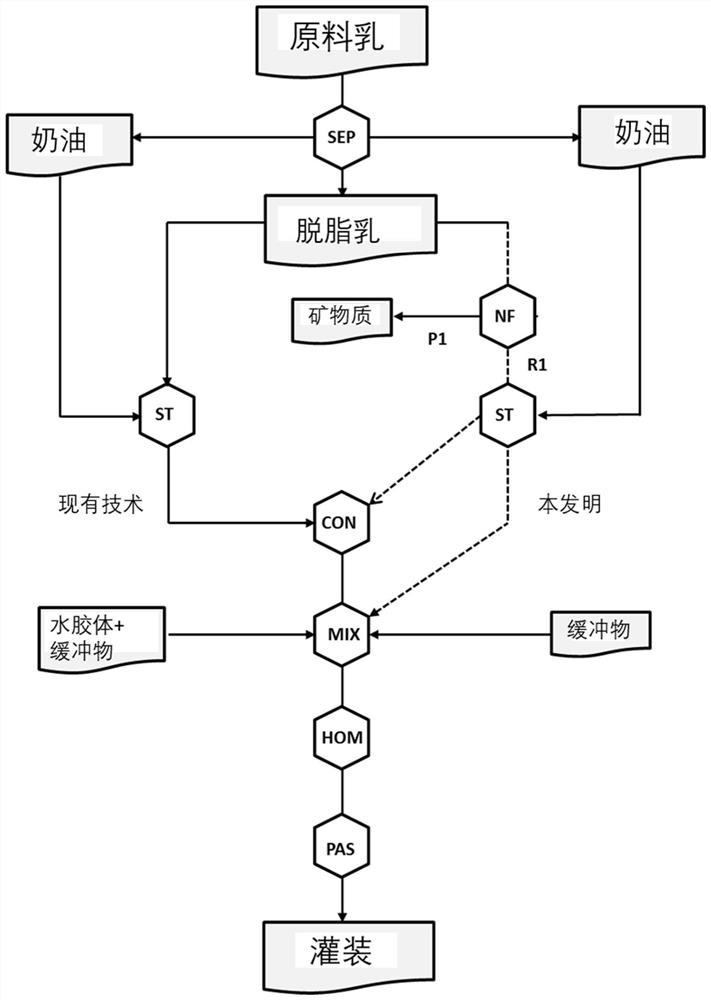Concentrated milk with improved taste
A concentrated milk and taste technology, applied in the field of concentrated milk, can solve the problems of increasing product sweetness and high cost
- Summary
- Abstract
- Description
- Claims
- Application Information
AI Technical Summary
Problems solved by technology
Method used
Image
Examples
Embodiment 1
[0075] Comparative Example V1 was repeated, but without carrageenan and with 2.0 kg of a 35% by weight buffer solution consisting of 1:1 molar sodium dihydrogen phosphate and sodium citrate instead of 1.5 kg of 35% by weight phosphate buffered saline solution.
Embodiment 2
[0077] 5,000 liters of raw milk flow continuously through a combination of plate heat exchanger and separator at 55°C, followed by dedusting and skimming. The resulting skim milk was subjected to nanofiltration at 20°C using a ceramic membrane with an average pore size of 1000 Daltons. The mineral-rich permeate was discharged and the partially demineralized and protein-rich retentate was adjusted to a fat content of 2% by weight in dry matter by addition of part of the pre-separated milk fat. The milk thus standardized was dehydrated in a falling-film evaporator until a fat-free dry matter of 18% by weight and a fat of 4% by weight was achieved. 2.0 kg of a 35% by weight buffer solution consisting of 1:1 molar sodium dihydrogen phosphate and sodium citrate was then added to the concentrate to establish a pH of approximately 6.4. The mixture was then homogenized in a stirred tank for 30 minutes, followed by brief heating (3 minutes, 121° C.), and the product pasteurized in thi...
PUM
 Login to View More
Login to View More Abstract
Description
Claims
Application Information
 Login to View More
Login to View More - Generate Ideas
- Intellectual Property
- Life Sciences
- Materials
- Tech Scout
- Unparalleled Data Quality
- Higher Quality Content
- 60% Fewer Hallucinations
Browse by: Latest US Patents, China's latest patents, Technical Efficacy Thesaurus, Application Domain, Technology Topic, Popular Technical Reports.
© 2025 PatSnap. All rights reserved.Legal|Privacy policy|Modern Slavery Act Transparency Statement|Sitemap|About US| Contact US: help@patsnap.com


